"Michelangelo's Moses is a marble sculpture made in 1513–15. One of the many details of this masterpiece is one very small muscle in the forearms that contracts only when lifting the pinky, otherwise it is invisible. Moses is lifting the pinky, therefore that tiny muscle is contracted."
"An 8-mile long "canvas" filled with ice age drawings of extinct animals has been discovered in the Amazon rainforest."
"Wonderful 2000-year-old sapphire ring presumably belonged to Roman emperor Caligula, thought depicting his fourth wife Caesonia."
"A newspaper ad from 1865 of an 18 year old man looking for a wife."
"The Veiled Christ, a 1753 marble sculpture by Giuseppe Sanmartino exhibited in the Cappella Sansevero in Naples. Due to its incredible detail, there was a legend that said that the statue was covered by real veil and slowly transformed over time into marble via chemical processes."
"First ever drawings of the moon made by Galileo Galeili after observing it through his telescope in 1609."
"1,500-year-old Ceramic Maya Figurine with Removable Helmet, from El Perú-Waka', Petén, Guatemala."
"Prague's astrological clock is the oldest still functioning clock in the world, 1410."
"Detail of the Hercules armor of the Emperor Maximilian II of Austria. Made in 1555, it's now on display at the Kunsthistorisches museum in Vienna."
"In the small village of Nashtifan, Iran, some of the oldest windmills in the world still spin. Made of natural clay, straw, and wood, the windmills have been milling grain for flour for an estimated 1,000 years."
"A 17th-century Ottoman three-mast tent made of silk and gilded leather. Now on display at the Turkish Chamber in the Dresden Armoury."
"2300 years old Scythian woman's boot preserved in the frozen ground of the Altai Mountains."
"Bowl with Fish, Iran, probably Kashan (late 13th–mid-14th century)."
"2000-year-old Roman face cream/lotion. Dating back to II AD. Object was found in the temple complex dedicated to Mars. It's world's oldest cosmetic face cream and it has finger marks in the lid."
"A Viking era ring inscribed with the words 'for Allah', found in the grave of a woman who was buried 1200 years ago in Birka, 25 km west of modern-day Stockholm. The ring constitutes a unique material evidence of direct contact between the Vikings and the Abbasid Caliphate."
"Ancient ‘Beware of Dog’ Sign From 2,000 Years Ago. A mosaic in front of a Roman poet's house in Pompeii, 1st Century AD. "Cave Canem"/caveat canine/beware of dog."
"An ancient Egyptian gold ring with a carnelian bezel in form of a cat. From the Third Intermediate Period (1070–712 BC), it's now in the collection of the British Museum."
"Samurai helmet (kabuko) shaped like an octopus. 1700s, Japan."
"Mourning clothes worn by count Magnus Brahe at the funeral of king Karl XIV Johan of Sweden in 1844."
"Incan Wall, a fine example of master Stonemasonry. Cuzco, 1400's."
"3400 yo painter's palette from ancient Egypt, Amenhotep III era."
"Detail from the "unswept floor" mosaic made by Heraclitus, showing a mouse eating a walnut. 2nd century CE, now on display at the Vatican Museums."
"Elaborate Ottoman-era birdhouses resembling miniature palaces and mosques."
"A gun hidden within a bible, made for Francesco Morozini, Doge of Venice (1619-1694). The owner of the bible could pull the silk bookmark to shoot while the book was still closed. Now on display at the Museo Correr in Venice."
"Stockings, 1830, cotton/silk."
"An amateur treasure hunter with a metal detector turned up a Medieval, gold ring that was set with a sapphire stone in Sherwood Forest—haunt of the legendary (or real) Robin Hood. Experts have examined the ring and believe it may date to the 14 th century."
"Abuna Yemata Guh is a monolithic church located in the Tigray Region, Ethiopia. It is situated at a height of 2,580 metres (its entrance is highlighted by a red circle) and has to be climbed on foot to reach. It is notable for its wall paintings dating back to the 5th century."
"Two books I picked up from the Goodwill where I work. The one on the left was printed in 1711 and is a collection of Pliny the Younger’s letters. The one on the right was printed in 1771 and is a school book about Greek Mythology."
"A Roman toddler's footprint in a red clay tile, imprinted as it was drying ~2000 years ago. Vaison-la-Romaine (ancient Vasio Vocontiorum)."
"Crystal spearhead found in a 5,000-year-old megalithic tomb in Spain. The tomb had the remains of 25 individuals, several of whom had consumed a poisonous substance."
"An Inuit otter amulet. Engraved and pigmented ivory, c.1870-1880."
"2000 year-old glass mosaics, from the ancient city of Zeugma in Turkey."
"One of the 4000-year-old well-preserved wagons unearthed in the Lchashen village in the vicinity of Lake Sevan. Made of oak, they are the oldest known wagons in the world. Now on display at the History Museum of Armenia."
"Chand Baori, the largest and deepest stepwell in India. It consists of 3500 narrow steps over 13 stories and extends 30 m into the ground. The oldest parts of the stepwell date from the 8th century, while the upper stories with the columned arcade around it were built in the 18th century."
"The Da Vinci Globe, dated 1504, is the oldest known globe to show the New World. Engraved with immaculate detail on two conjoined lower halves of ostrich eggs."
"Thirteen-year-old Israeli goes foraging for mushrooms, stumbles upon a Byzantine burial inscription."
"(1528-29) German hunting knife that's also a gun, that's also a calendar."
"The ceiling of the 2000 years old hypostyle hall of the temple of Hathor in Dendera, Egypt."
"9000 year old cave painting in Tassili cave Algeria. Depicting a shaman during psychedelic mushroom use."
"Oldest surviving pair of Levis jeans, 1879."
"A cabin on board the Aachen, a 19th-century steamship hit by a torpedo in July 1915. Now located at the bottom of the Baltic Sea."
"Breastplate Armor of Ferdinand I, Holy Roman Emperor, 1549."
"Curious Artefacts: Hitler's Telephone, one of the deadliest weapons of all times"

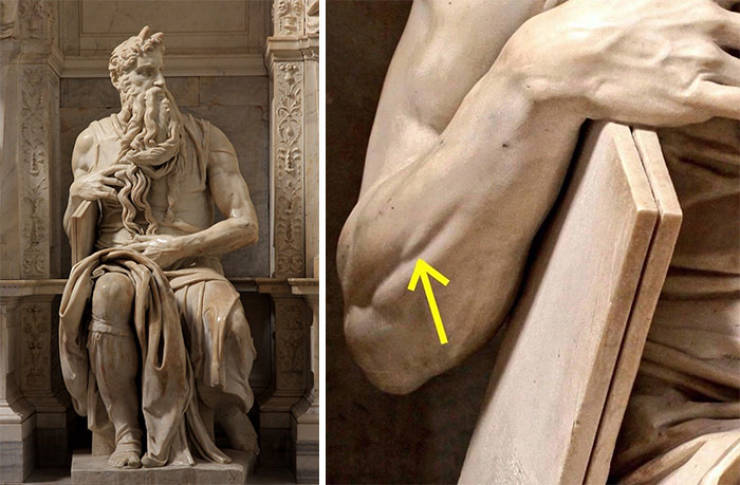

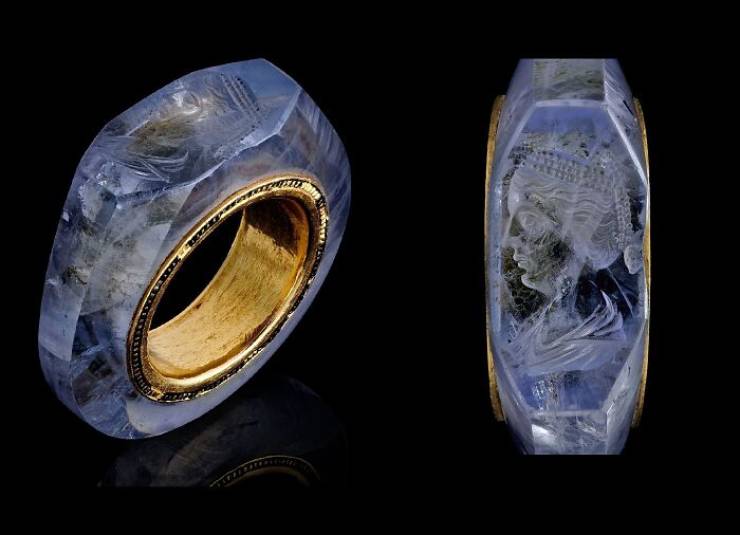

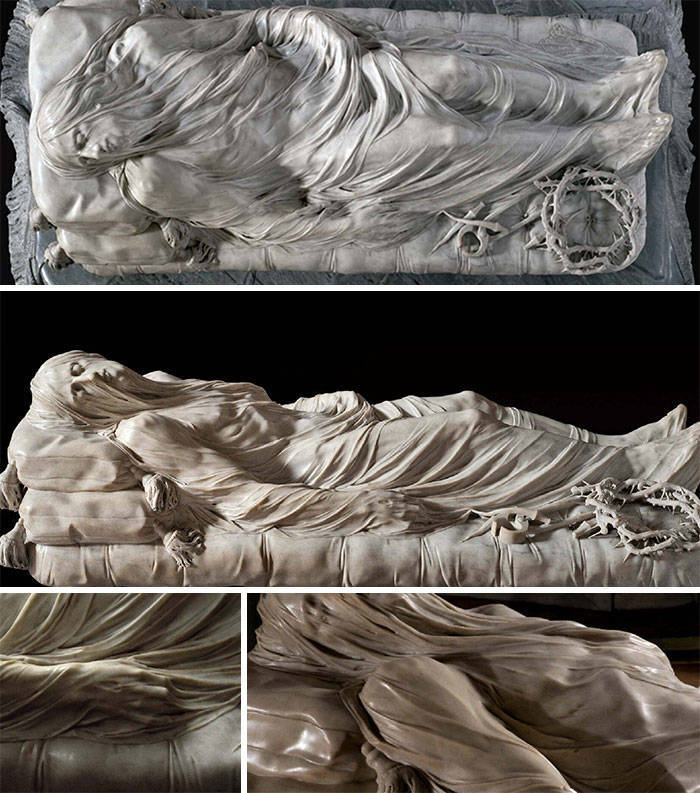
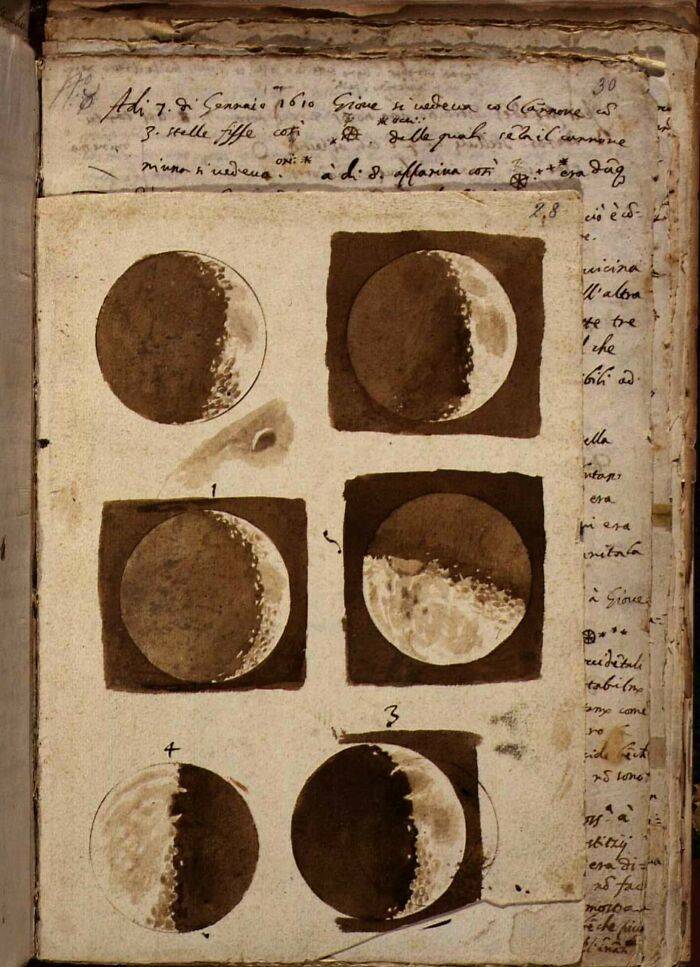
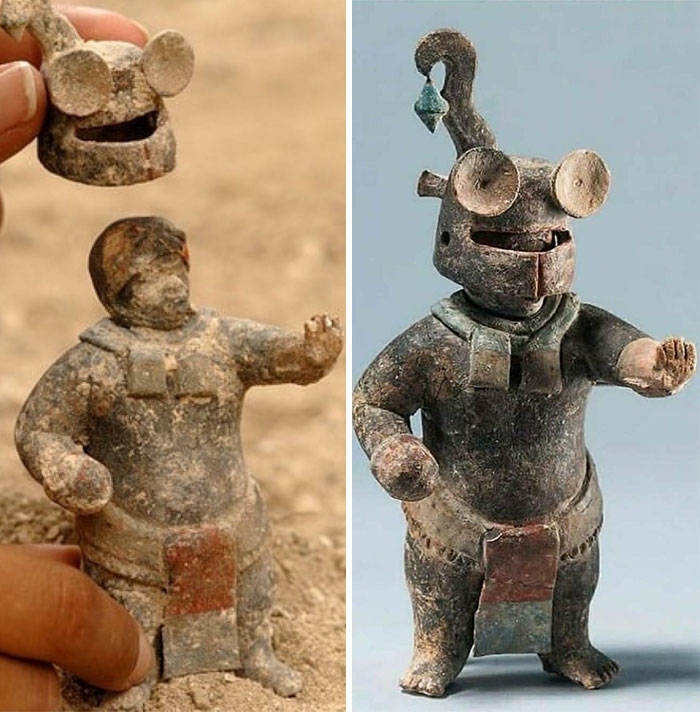

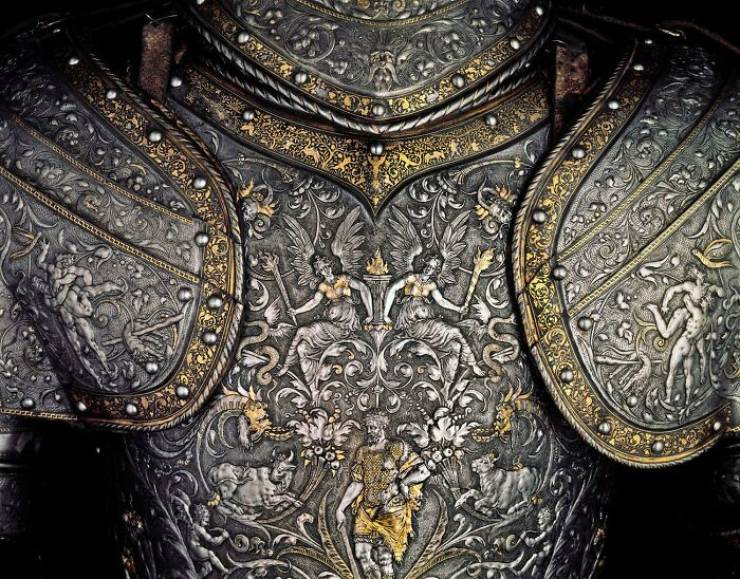


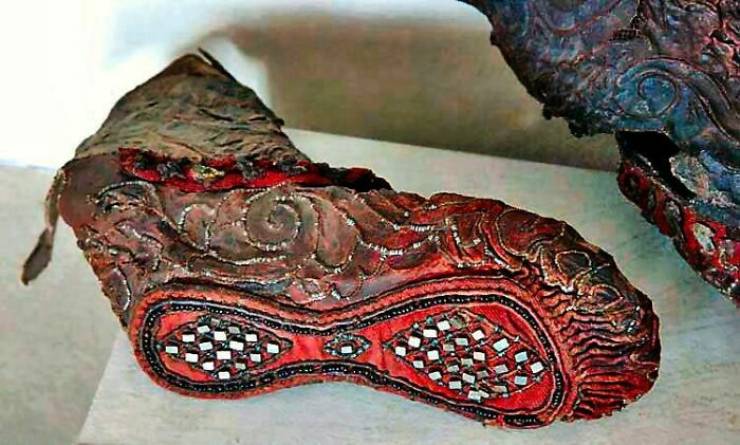
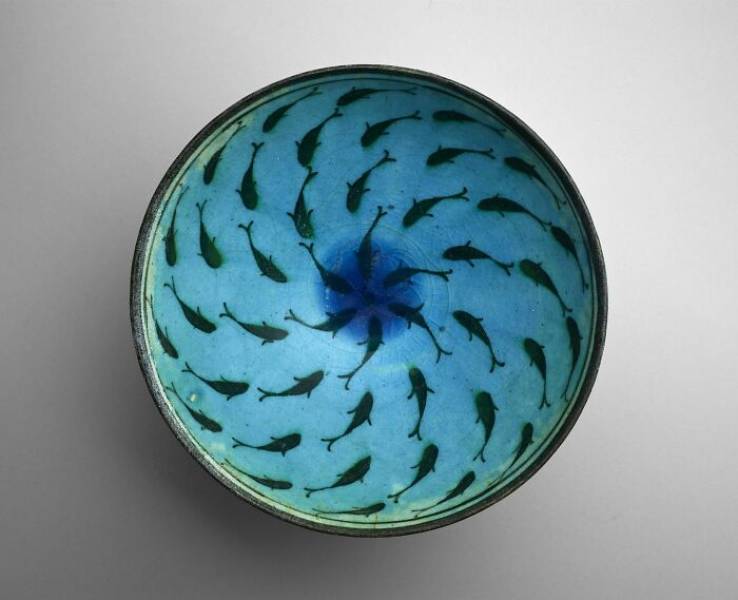
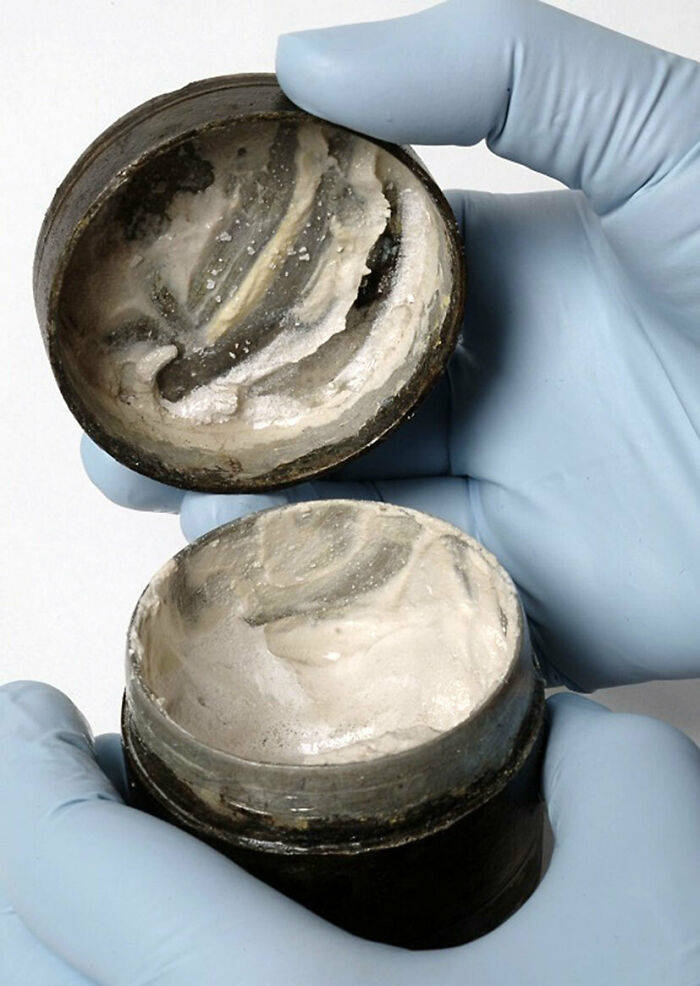
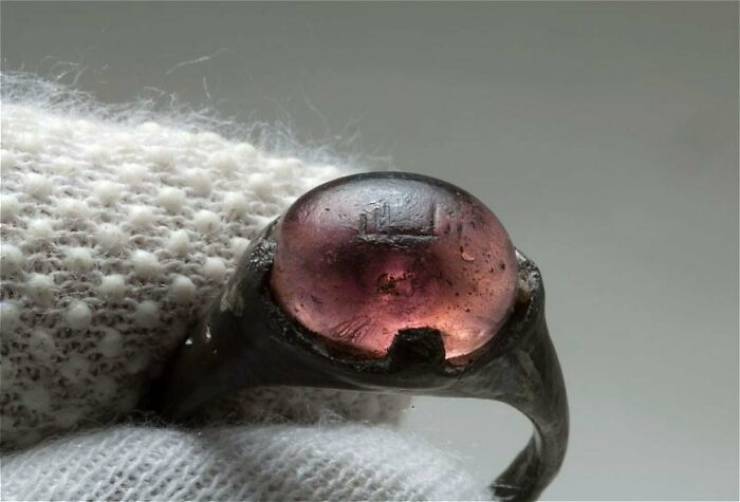
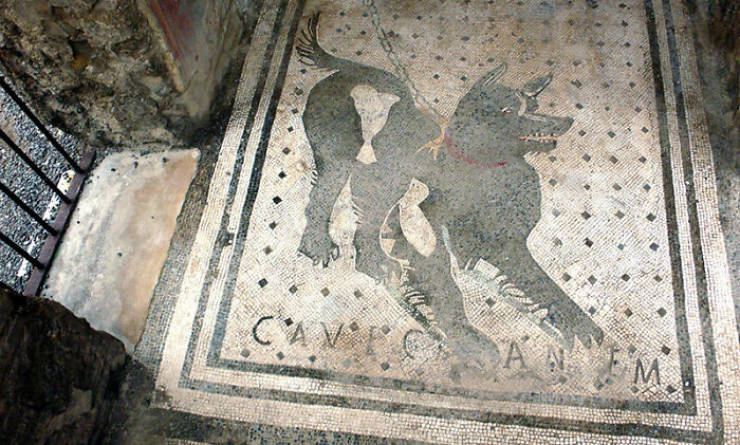
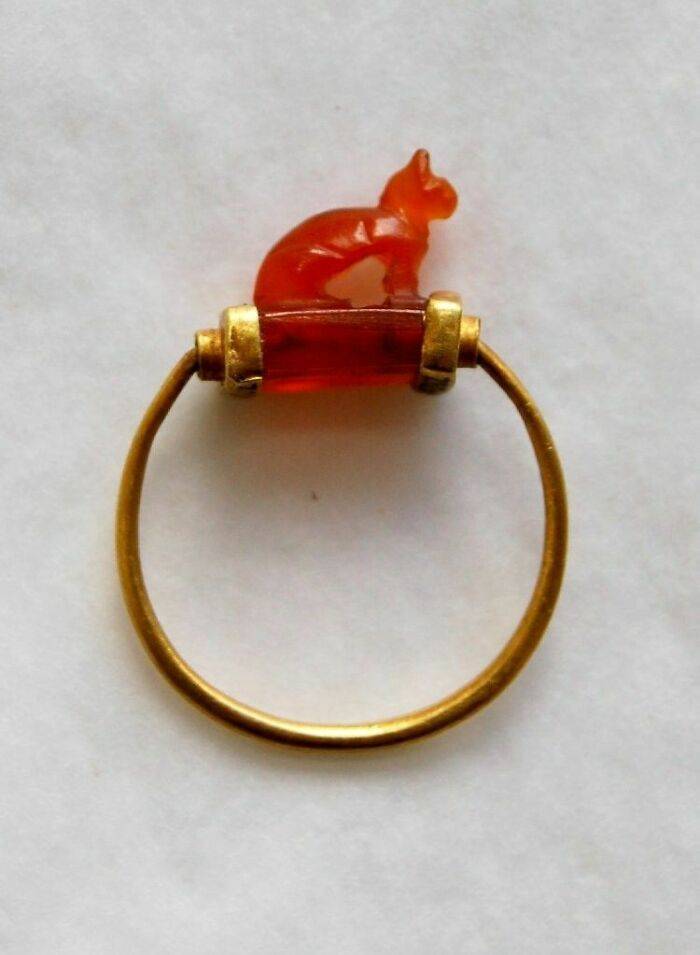
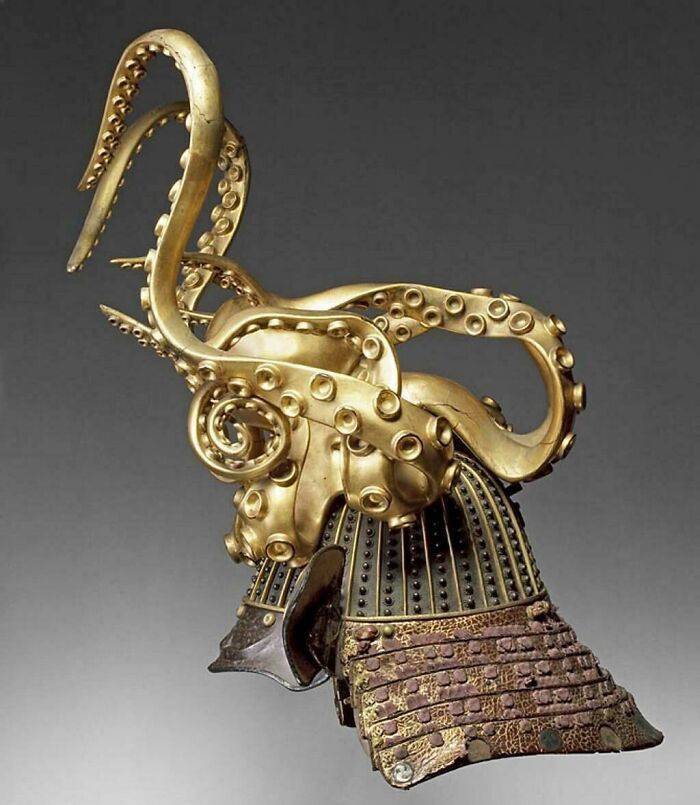
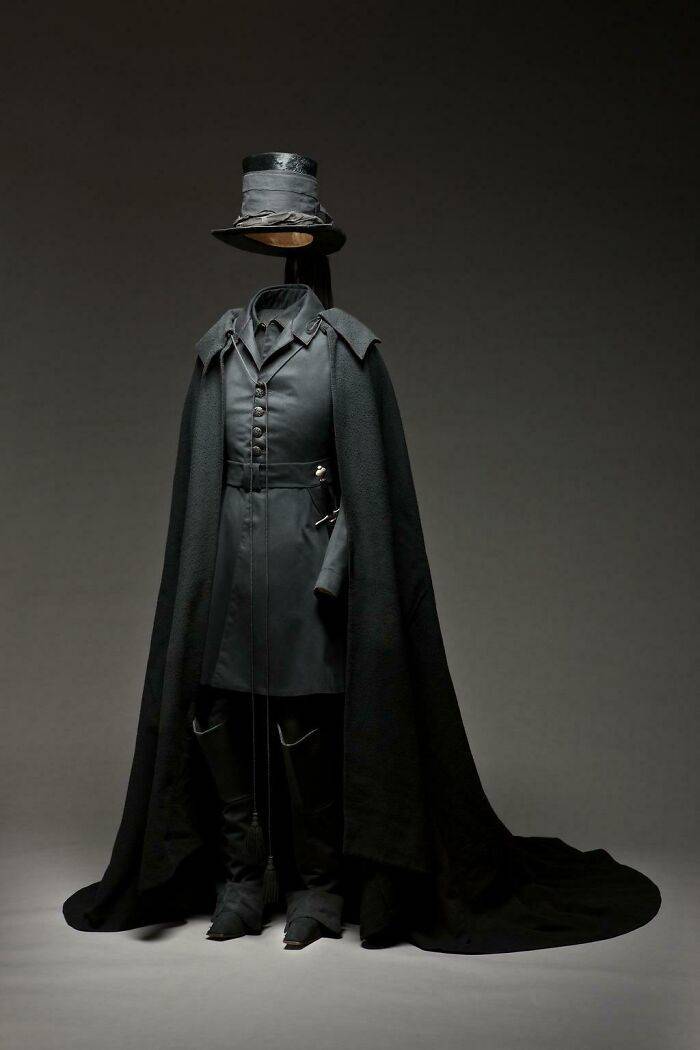
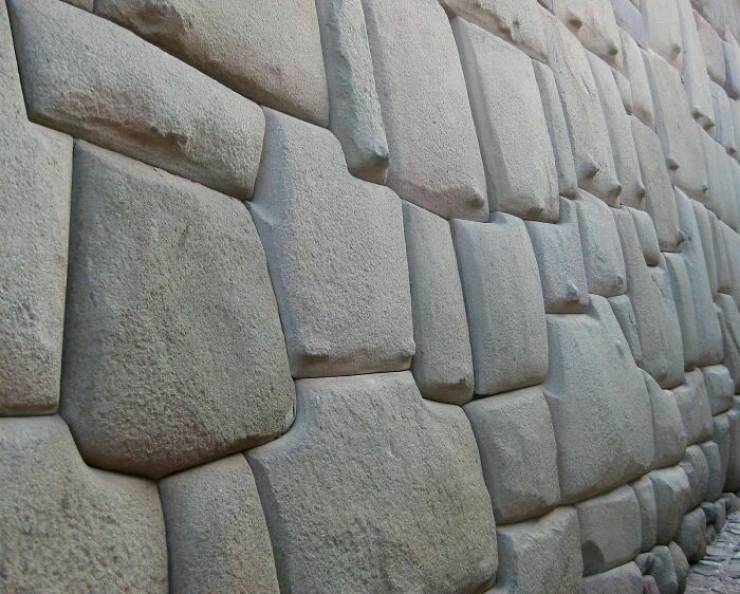
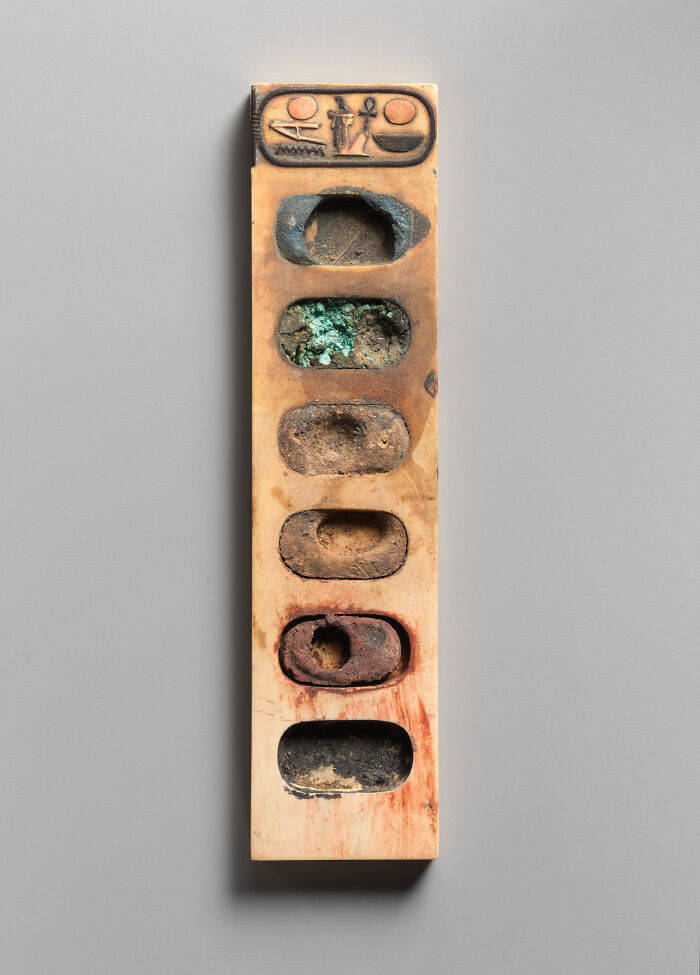
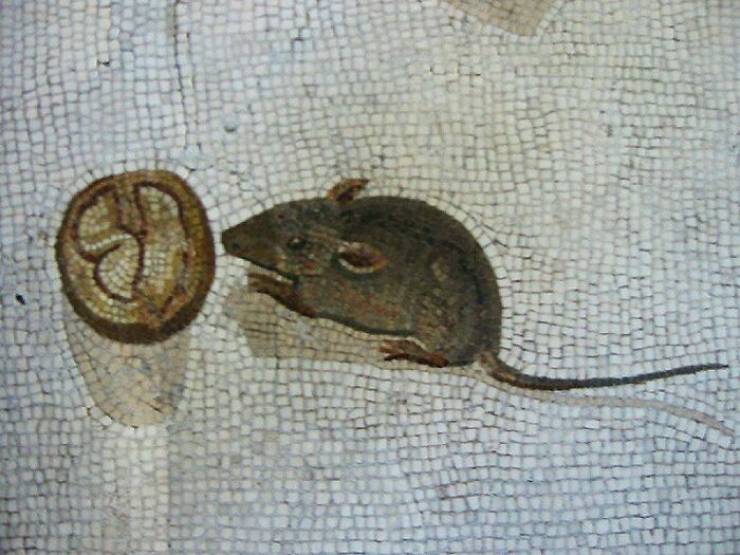
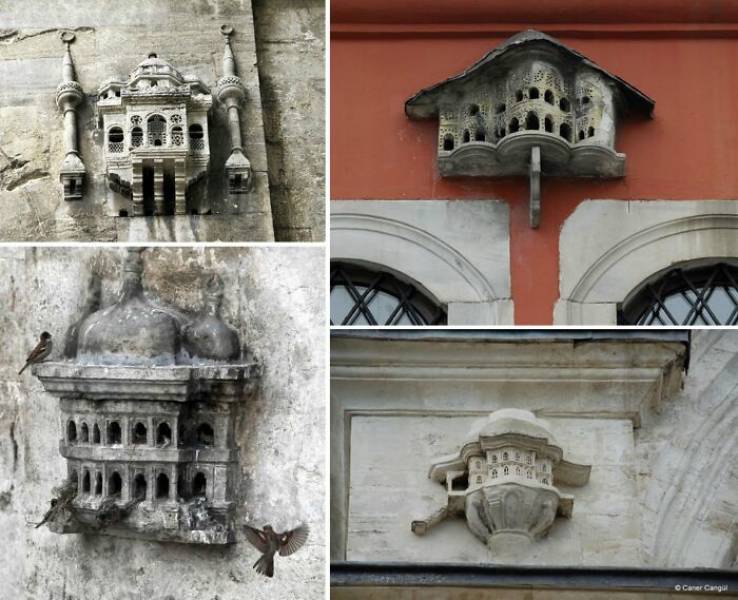
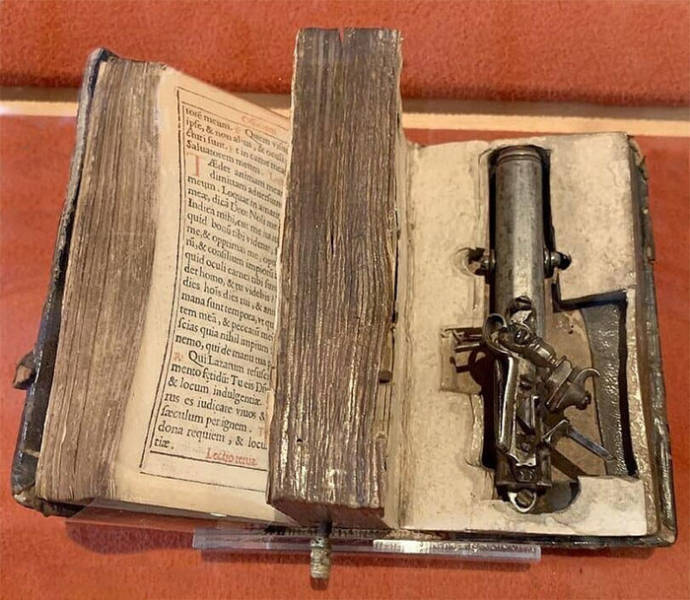
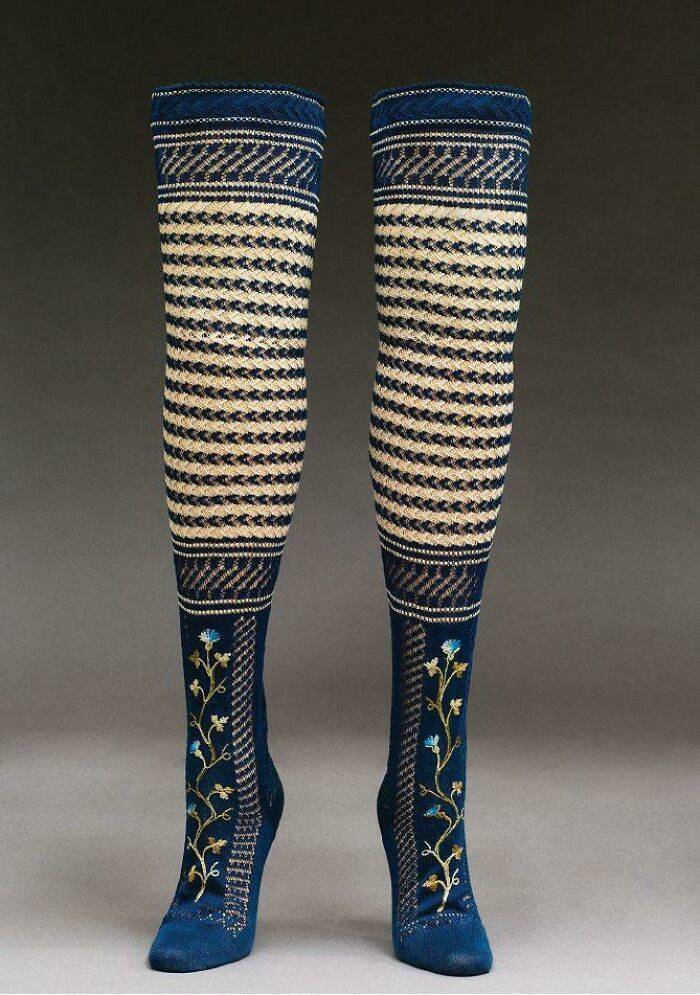
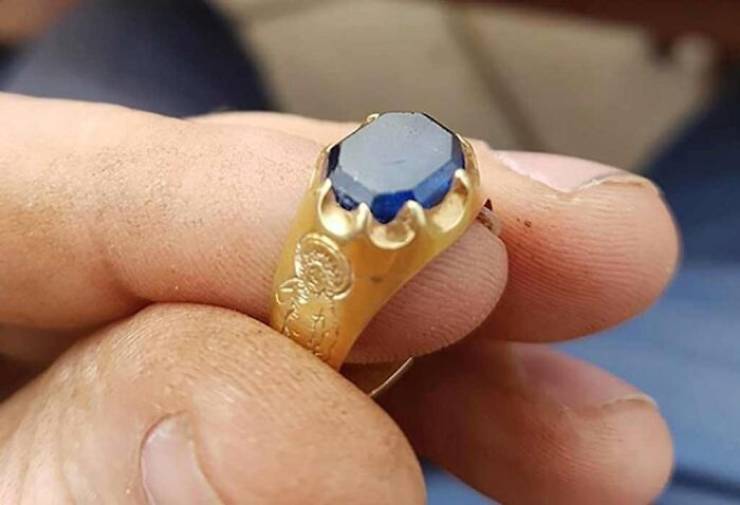
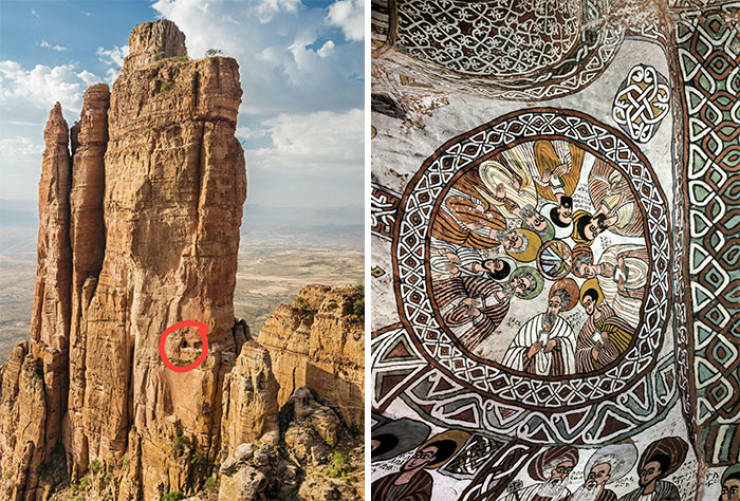
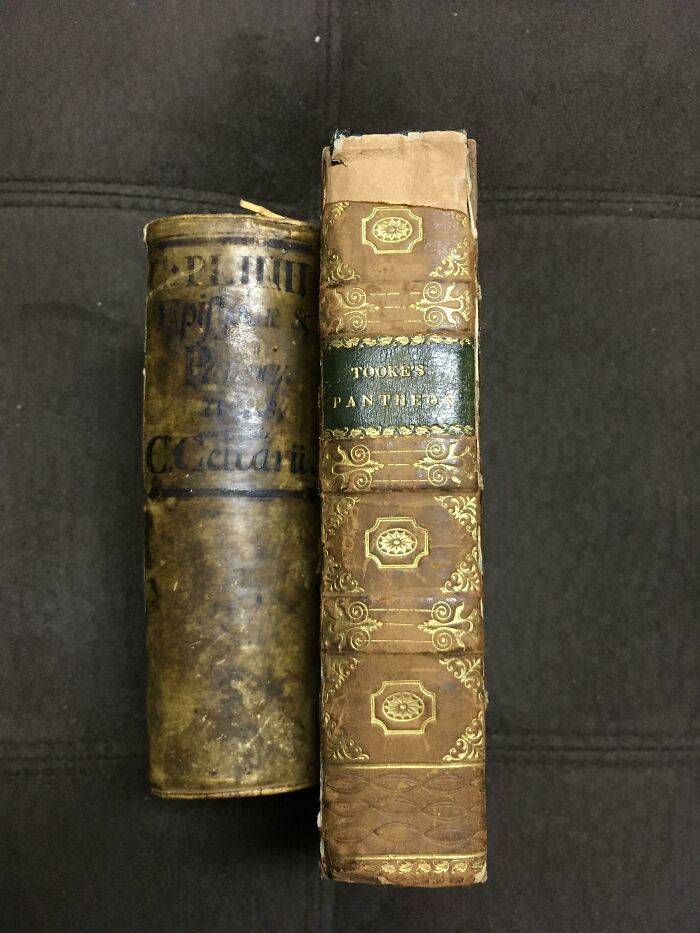
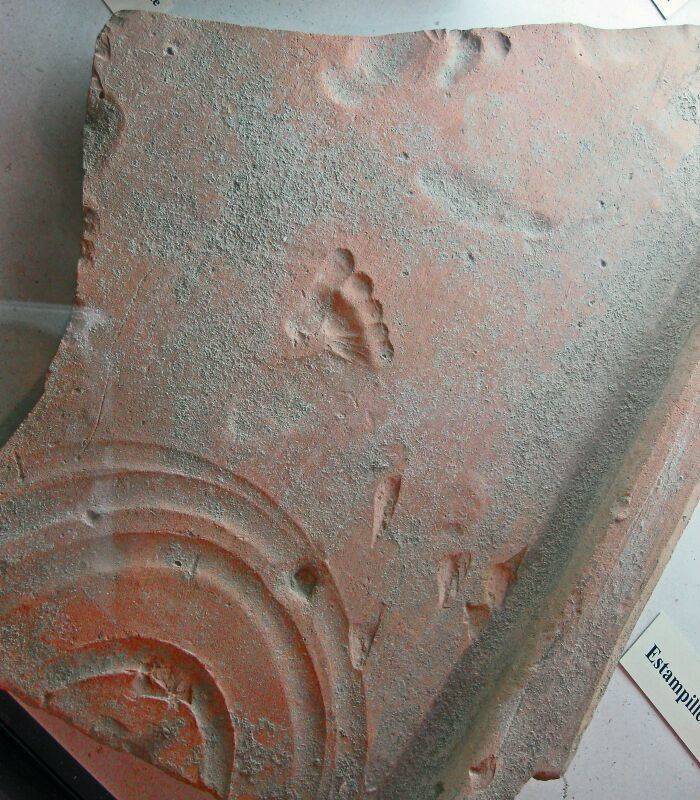
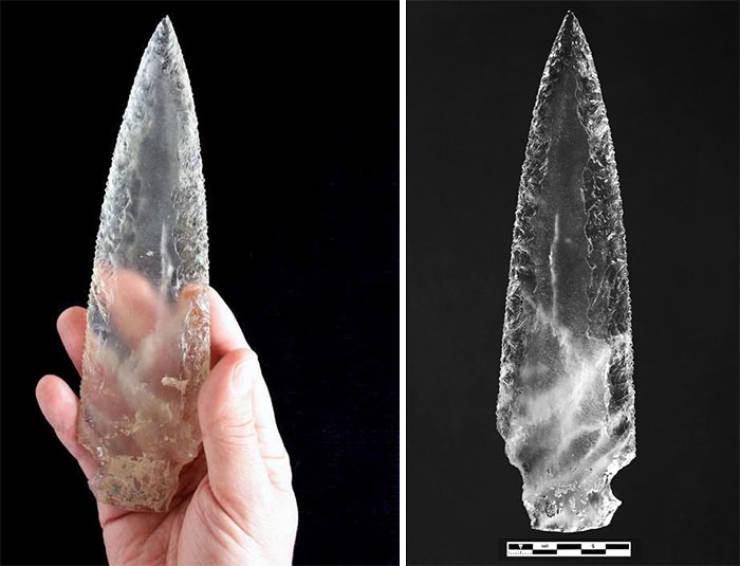
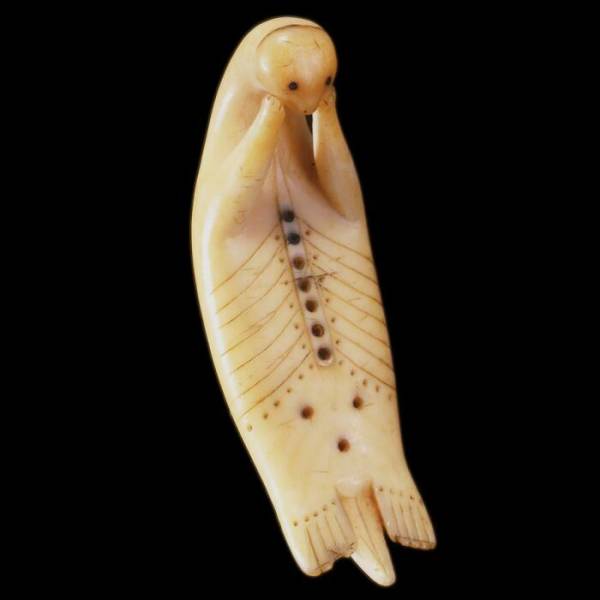

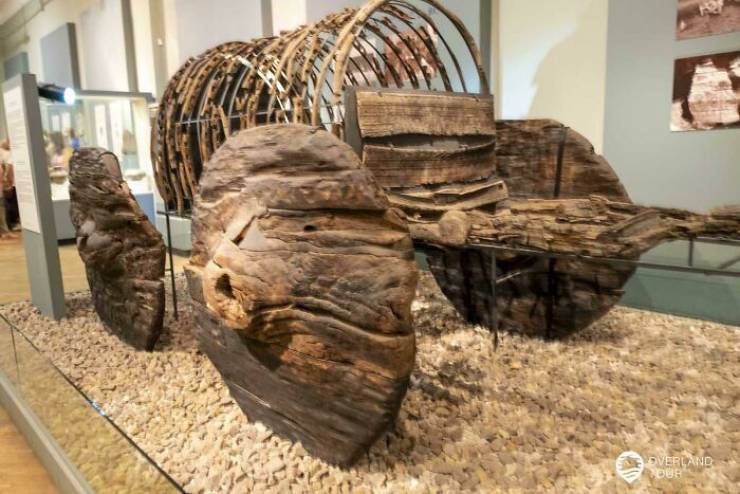

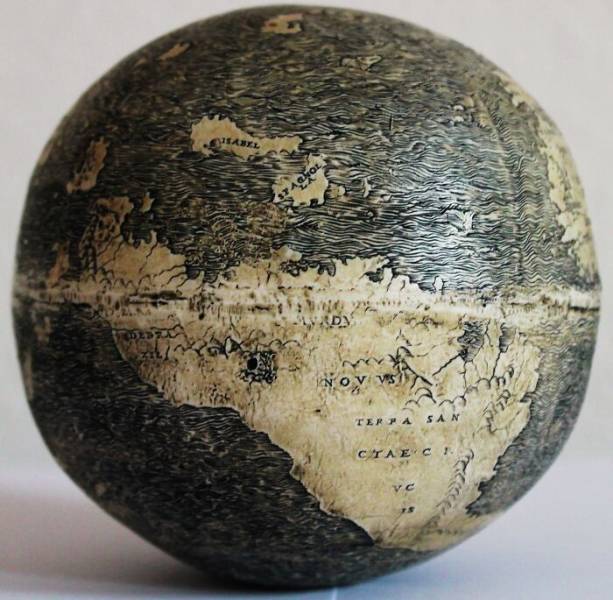
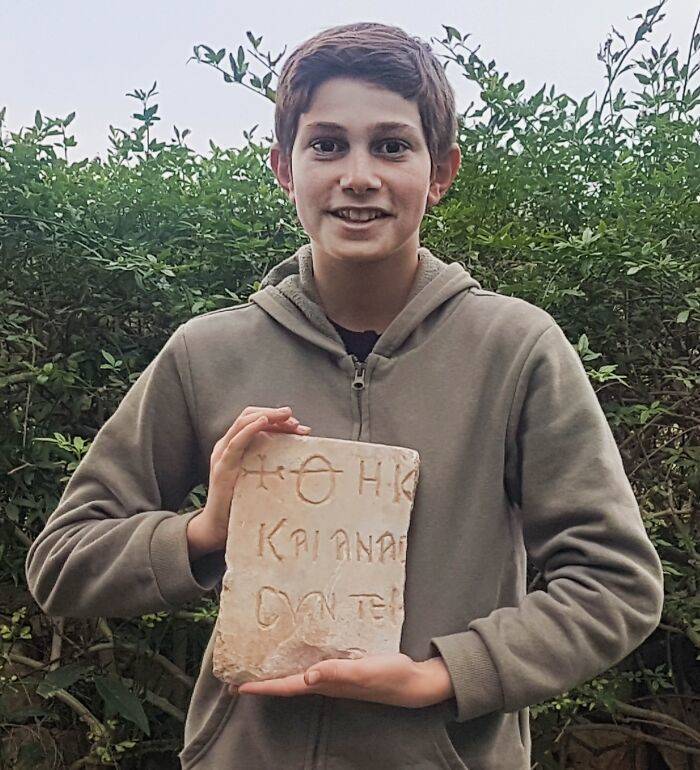
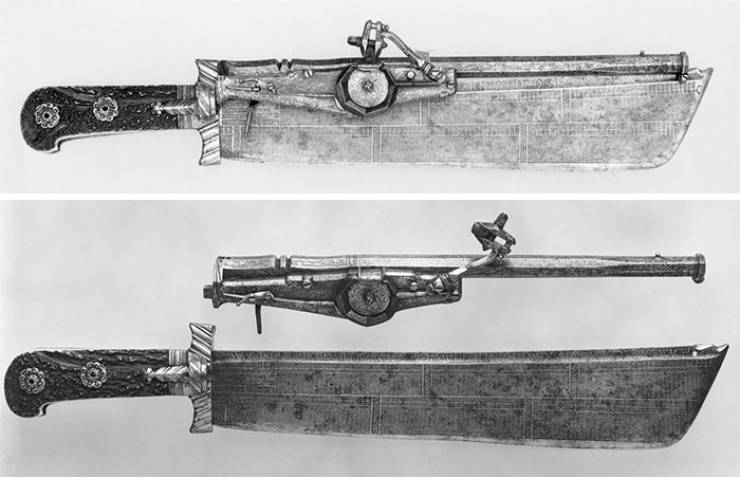


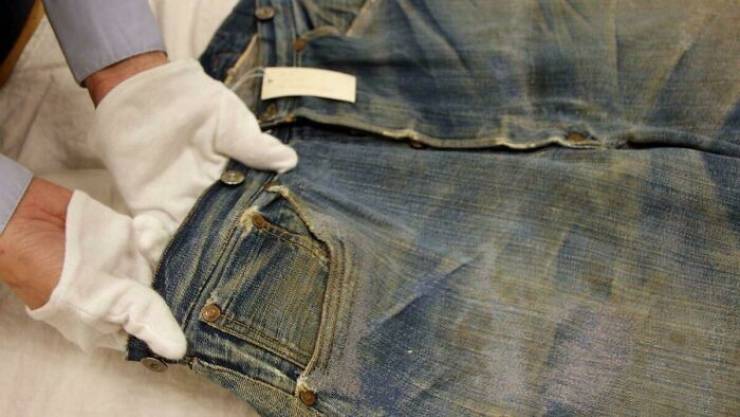
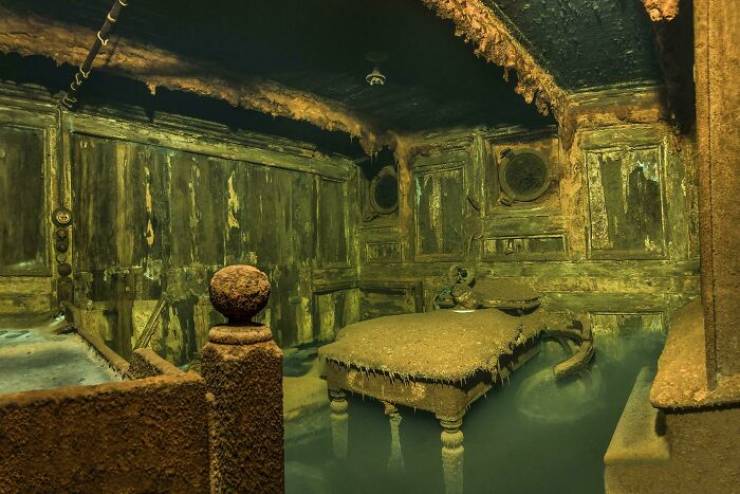
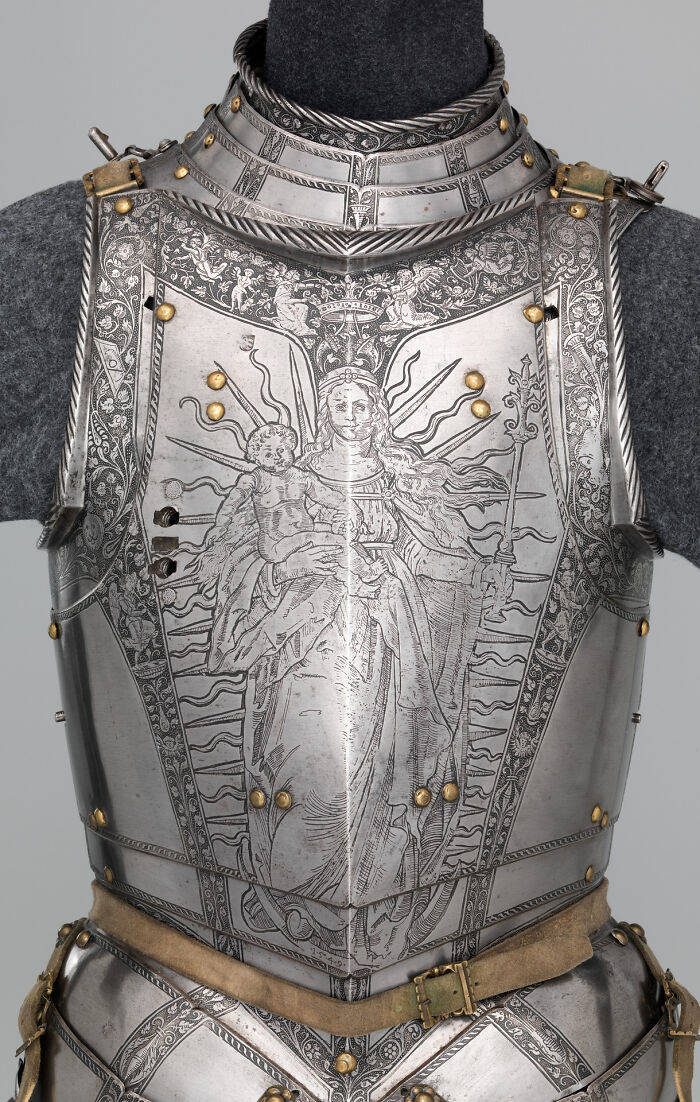
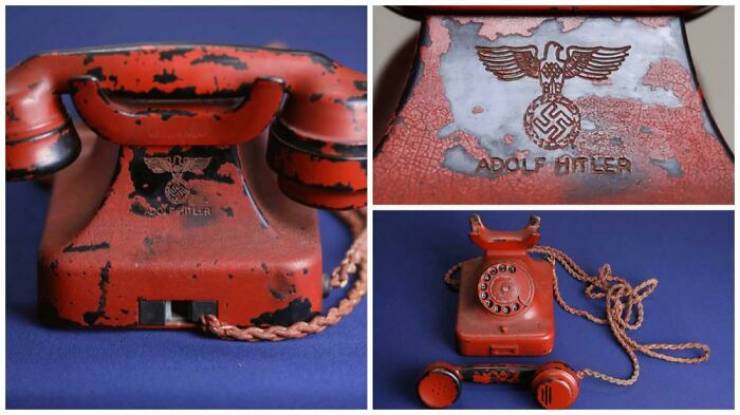



Strasbourg astronomical clock
A first clock, known as the Three Kings (because it scrolled the three wise men in front of the Holy Family every hour), had been built between 1352 and 1354 by an unknown master, but it had to cease to function at the beginning of the sixteenth century. due to its wear and rust 3.
The third and current clock generally consists of new mechanisms placed in the case of the second clock, dating from the sixteenth century.
Its creator was blinded by the towns officials, so that he could not create a second or better clock.
#31 is an otter though highly stylised. Notice the 2 limbs near the face. A seal would have flippers.